Atmospheric Co2 facts
While investigating facts about Atmospheric Co2, I found out little known, but curios details like:
There is a fern that has such a high level of atmospheric carbon sequestration that it caused an ice age. Azolla captures 6 tons of atmoshperic carbon per acre per year and could reduce global CO2 levels, while providing high protein livestock feed, or nitrogen rich fertilizer.
The Earth's oceans absorb 25% of the carbon dioxide (CO2) that is released into the atmosphere every year. However, because of the increasing amounts of CO2 into the world's atmosphere, the world's oceans are slowly turning acidic.
In my opinion, it is useful to put together a list of the most interesting details from trusted sources that I've come across. Here are 31 of the best facts about Atmospheric Co2 I managed to collect.
-
It is predicated that all multicellular life on Earth will die out from a lack of CO2 in the atmosphere in 800 million years, 6.59 billion years before the earth is engulfed by the red giant sun
-
It's possible to 'scrub' carbon dioxide out of the air. The captured CO2 can then be used to create low-carbon fuels or stored to eliminate the emissions from the atmosphere
-
Surface planet Venus’ surface doesn't have 'air'. Surface temperatures of 467°C and surface pressures 93X of Earth force the CO2 atmosphere into supercriticality, when a fluid is both liquid and gas. This effective heat conductor keeps Venus' hellish temperature unchanging between night and day.
-
A British Columbia company backed by the Gates Foundation is sucking CO2 directly from the atmosphere and converting it to usable transportation fuel. The plant removes one ton of carbon dioxide a day, the equivalent of taking 100 cars off the road annually.
-
49 million years ago a single type of fern called 'Azolla' is believed to have caused an 80% drop in atmospheric CO2 and drove the creation of our current climate
-
Within about 600 million years, faster weathering of rocks by an increasingly brighter sun will reduce atmospheric CO2 levels below the threshold required for trees to survive, and all of earth's forests will die.
-
The same technology a NASA contractor developed to turn CO2 in the Martian atmosphere into oxygen and fuel is now used in breweries to capture the CO2 produced from fermentation to carbonate the beer
-
In 2015, a 400 million year old fossil forest was discovered on an archipelago situated in the Arctic Ocean. The fossils indicated the area would’ve been covered in extremely dense, 13-foot tall lycopod trees that actually helped reduce the CO2 levels in the atmosphere by 15-fold.
-
There is more CO2 (carbon dioxide) in the atmosphere today than at any point in the last 800,000 years.
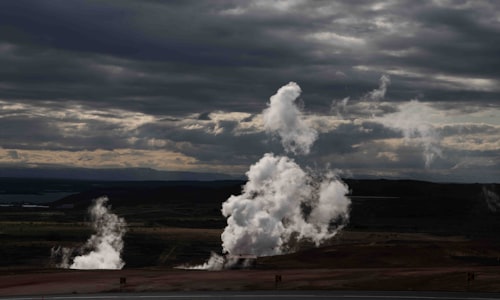
Atmospheric Co2 data charts
For your convenience take a look at Atmospheric Co2 figures with stats and charts presented as graphic.
What is true about atmospheric co2?
You can easily fact check it by examining the linked well-known sources.
A low energy process exists for pulling CO2 from the atmosphere. It could decrease atmospheric CO2 levels to those of the pre-industrial revolution within 10 years.
The surface of Venus is hotter then the surface of Mercury due to the higher concentration of CO2 in the atmosphere. The surface of Venus is 460 degrees Celsius whereas Mercury is 427 degrees Celsius. - source
CO2 produced from burning fossil fuels or burning forests has a different isotopic composition from CO2 in the atmosphere and if the ratio of 13C/12C in atmospheric CO2 goes up or down, so does the 13C/12C of ratio of tree rings. - source
The last century of whaling, by burning whale oil, released 100 million tons of CO2 into the atmosphere, the equivalent of burning down a forest the size of Nicaragua
Increased atmospheric CO2 is associated with decreased protein content in plants. - source
CO2 is evenly dispersed throughout the atmosphere.
Ocean acidification is the ongoing decrease in the pH of the Earth's oceans, caused by the uptake of carbon dioxide (CO2) from the atmosphere.
On Mars in the winter, 30% of the atmosphere freezes as dry ice (CO2) at the poles. In the spring, when it warms, there are eruptions as the CO2 melts as well as winds off the poles at 400km/hr.
Pancakes on Mars would be bigger and fluffier due to larger CO2 bubbles caused by the lower pressure of the atmosphere and the lower gravity.
Iron Fertilization. Placing a few tons of water soluble iron into the ocean can spark such a great amount of photosynthesis from phytoplankton that they can reduce the amount of CO2 drastically In the atmosphere More efficiently than 2000 redwood trees.
25% of all man made CO2 went into the atmosphere from 1997-2012 and no temperature increase occurred.
Atmospheric co2 infographics
Beautiful visual representation of Atmospheric Co2 numbers and stats to get perspecive of the whole story.
Geography and seasonality in growth of atmospheric CO2 concentration
